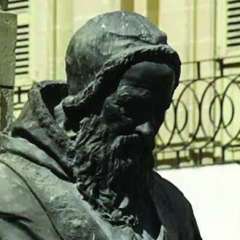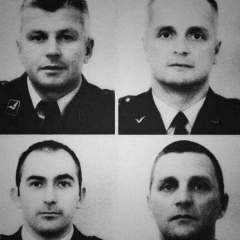Претражи Живе Речи Утехе
Showing results for tags 'marks'.
Found 2 results
-
The Four Marks of the Church Author: Kenneth D. Whitehead We can show how the Church of the apostles resembles in all essentials the Church of today by showing how the early Church already bore the marks, or "notes," of the true Church of Christ which are still professed today in the Nicene Creed. The Nicene Creed declares the Church to be One, Holy, Catholic, and Apostolic. Thus, the Church of the apostles was definitely one: "There is one body and one spirit," Paul wrote, "just as you were called to the one hope that belongs to your call, one Lord, one faith, one baptism, one God and Father of us all" (Eph. 4:4-5). Paul linked this primitive unity to the Church's common Eucharistic bread: "Because there is one bread, we who are many are one body, for we all partake of one bread" (1 Cor. 10:17). Jesus had promised at the outset that "there would be one flock, one shepherd" (John 10:16). Similarly, the Church of the apostles was holy. When we say that, we mean among other things that it had the all-holy God himself as author. We do not mean that all of its members have ceased to be sinners and have themselves become all-holy. On the contrary, the Church from the beginning, on her human side, has been composed of sinners: "Christ Jesus came into the world to save sinners" (1 Tim. 1:15). The Church was founded for no other reason than to continue Christ's redemptive and sanctifying work with them in the world. One of the things implicit in the appellation "holy" as applied to the Church, then, is that the Church from the beginning has been endowed with the sacramental means to help make holy the sinners who are found in her ranks. The Church has been given the sacraments along with the word precisely in order to be able to help make sinners holy. It was in this sense that Paul was able to write, "Christ loved the Church and gave himself up for her, that he might sanctify her, having cleansed her by the washing of water with the word, that he might present the Church to himself in splendor, without spot or wrinkle or any such thing, that she might be holy and without blemish" (Eph. 5:25-27). The holiness of the Church, of which the creed properly speaks, has always had reference to her divine Founder and to what the Church was founded by him with the power and authority to do, not with the condition of her members. The third great historic mark or note of the one true Church was that this Church was Catholic. "Catholic" means "universal." It refers as much to the fullness of the faith which it possesses as it does to the undeniable extension in both time and space which has characterized it virtually from the beginning. At the very beginning, of course, it was no doubt difficult to see how the "little flock" (Luke 12:32) of which the Church then consisted could by any stretch of the imagination qualify as "universal." Still, just as the embryo contains in germ the whole human being, so the Church already contained the universality that would quickly begin to manifest itself. It is not without significance that the Holy Spirit came down upon the Church at Pentecost at a time when "there were dwelling in Jerusalem Jews, devout men from every nation under heaven" (Acts 2:5). It was to them that the Holy Spirit temporarily enabled the apostles to speak in the languages of all these various nations--a powerful sign that the Church was destined for all men everywhere, represented at that first Pentecost in Jerusalem by those of many nations who had come there from afar. Many accepted the faith then and there and presumably began forthwith carrying "the Catholic Church" back to the four corners of the earth. The Catholicity of the Church in any case resides as much in the fact that the Church is for everybody at all times as it does in the fact that it was indeed destined to spread everywhere throughout the whole world. Within a few years of the foundation of the Church, Paul was writing that "the word of truth . . . in the whole world . . . is bearing fruit and growing" (Col. 1:5-6). Finally, the Church that issued from the commission of Christ to the apostles was necessarily apostolic. Christ founded the Church upon the apostles and in no other way: "Did I not choose you, the twelve?" he asked them (John 6:70). The apostles of all people understood perfectly well that they did not set themselves up in their own little community, as we sometimes today see "gospel churches" set up in store fronts or in the suburbs. The New Testament teaches, "One does not take the honor upon himself" (Heb. 5:4). Nothing is clearer, then, that the Church started out as "apostolic." The question is whether the apostles had the power and authority to pass on to others what they had received from Christ. We have already seen that they very definitely did have this power and authority; the New Testament evidence is clear about that. The subsequent historical evidence is equally clear that they did pass it on to successors (the bishops). Indeed there are already references in the New Testament itself to the appointment of bishops by the apostles, as well as to the appointment of further bishops by them (Titus 1:5-9). When we ask where, if anywhere, is to be found the same Church which the New Testament tells us Christ founded, we have to reformulate the question to ask: What Church, if any, descends in an unbroken line from the apostles of Jesus Christ (and also, not incidentally, possesses the other essential notes of the true Church of which the creed speaks)? Further, to introduce a point we have not dwelt upon at all up to now, What Church, if any, is headed by a single recognized designated leader, just as the apostles of Jesus plainly functioned, on the evidence of the New Testament, under the headship of Peter? To ask these questions is to answer them: Any entity or body claiming to be the Church of Christ would have to be able to demonstrate its apostolicity by demonstrating an organic link with the original apostles on whom Christ manifestly established his Church. Nothing less than this could qualify as the "apostolic" Church which Jesus founded. As much for our instruction as for the assurance he intended to give to the apostles to whom he was actually speaking, Jesus said, "He who hears you, hears me" (Luke 10:16). Do we take these words seriously today? Do we listen to the teachings of the successors of the apostles of Jesus, the bishops, in union with and under the successor of the apostle Peter, the pope, as if these teachings were the words of Christ himself? If we do, we are properly members of the Church which Jesus Christ founded on the apostles and which has come down to us from them. If we do not, how can we pretend that we take anything seriously that Christ said and taught? He said nothing more solemnly and categorically than these words, in which he declared that the apostles and their successors would speak for him in the serious business of gathering in and sanctifying his people and leading them toward the salvation he offers. Jesus intended that the fullness of his grace should come to his people in a Church that, from the beginning, was what the creed still calls it today: One, Holy, Catholic, and Apostolic. The Four Marks of the Church | EWTN WWW.EWTN.COM EWTN is a global, Catholic Television, Catholic Radio, and Catholic News Network that provides catholic programming and news coverage from around the world.
-
Tramp ili Hilari, Bregzit ili ostanak Britanije u Uniji, Maduro ili Gvajdo - nema dobrog izbora, oba su loša, piše u najnovijem tekstu Slavoj Žižek. Ovaj 70-godišnji Slovenac jedan je od najcitiranijih filozofa današnjice. Da li je on vanzemaljac koji najbolje razume Marksa i kompaniju ili je samo levičar koji savršeno razume kako funkcioniše kapitalističko tržište? Pogledajte vodič kroz život i delo Slavoja Žižeka.
Све поруке на форуму, осим званичних саопштења Српске Православне Цркве, су искључиво лична мишљења чланова форума 'Живе Речи Утехе' и уредништво не сноси никакву материјалну и кривичну одговорност услед погрешних информација. Објављивање информација са сајта у некомерцијалне сврхе могуће је само уз навођење URL адресе дискусије. За све друге видове дистрибуције потребно је имати изричиту дозволу администратора Поука.орг и/или аутора порука. Коментари се на сајту Поуке.орг објављују у реалном времену и Администрација се не може сматрати одговорним за написано. Забрањен је говор мржње, псовање, вређање и клеветање. Такав садржај ће бити избрисан чим буде примећен, а аутори могу бити пријављени надлежним институцијама. Чланови имају опцију пријављивања недоличних порука, те непримерен садржај могу пријавити Администрацији. Такође, ако имате проблема са регистрацијом или заборављеном шифром за сајтове Поуке.орг и Црква.нет, пошаљите нам поруку у контакт форми да Вам помогнемо у решавању проблема.
![]() © ☦ 2021 Сва права задржана.
© ☦ 2021 Сва права задржана.


